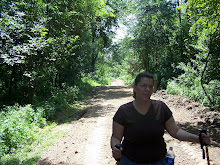It wasn't until I actually sat down on my own and read Twelfth Night that I fell in love with Shakespeare. I took a course in college where we dissected at least 8 of his plays. I loved reading them in the old translation and understanding the jokes and asides behind them. What they didn't teach me in high school was that Shakespeare was funny and insightful and political. I was just told that he was a classic and that I had to read him. And he is a classic and his plays should be read. But not just because he is listed as a classic. Shakespeare's work is some of the most copied or used works ever. His plays define the most common plot styles. More words and common phrases have come out of Shakespeare's work than any other writer in history. Yet we know almost nothing about him. I certainly didn't learn anything about his life in high school or college.

So this past week I picked up Bill Bryson's Shakespeare: The World as Stage with the desire to learn a little bit more about his history. I was in for a rude awakening. We don't really know that much about him in general. There are large periods of time in his history that we have no idea what city he was even in. We can't say for certain what day he was born. We know a little bit about his father who was not the provincial that every claims he was. We know some of the plays that he wrote but we are missing a few. We know he acted in all the plays he wrote, although we will probably never know the order in which he wrote them. We don't even really know what he looked like.
The sonnets, some of Shakespeare's most romantic poems, were written for a young man although we don't know his relationship to that young man. We know he was married and that he had two daughters but we have no idea what sort of relationship he had with any of them. For a while I guess there was a claim going around that Shakespeare didn't own any books. The sad fact is that other than two houses, a couple beds, a sword, and a silver bowl, we have no idea what sort of things he owned. We aren't even sure if the will he left is his own. Or really how to spell his name. (He himself spelled it six or seven different ways).
Bryson of course does touch on the statements that have been made that Shakespeare didn't write the works that are attributed to him. I waited for most of the book to hear his take on the controversy. And Bryson delivered. It was interesting to learn the history of where these accusations have come from. Most of the people who came up with these theories were either completely loony (actually the last name of one of the accusers) or basing the accusation on no actual evidence. For most of the people doubting, it is based entirely on an idea that Shakespeare wasn't smart enough to write the plays. And my favorite point was that no one, for the first 100 years after Shakespeare's death, questioned his authorship. Many praised his work during his own time. I would think that would be proof enough.
I've read a lot of Shakespeare's work, some in classes, some on my own. I've marveled at his turn of phrase and fantastic flair for the dramatic. The soliloquies in Hamlet, the staging of Macbeth, the humor of Much Ado About Nothing. The man was an amazing writer. I bet he was a good actor as well. Sadly, the world will never know.


No comments:
Post a Comment